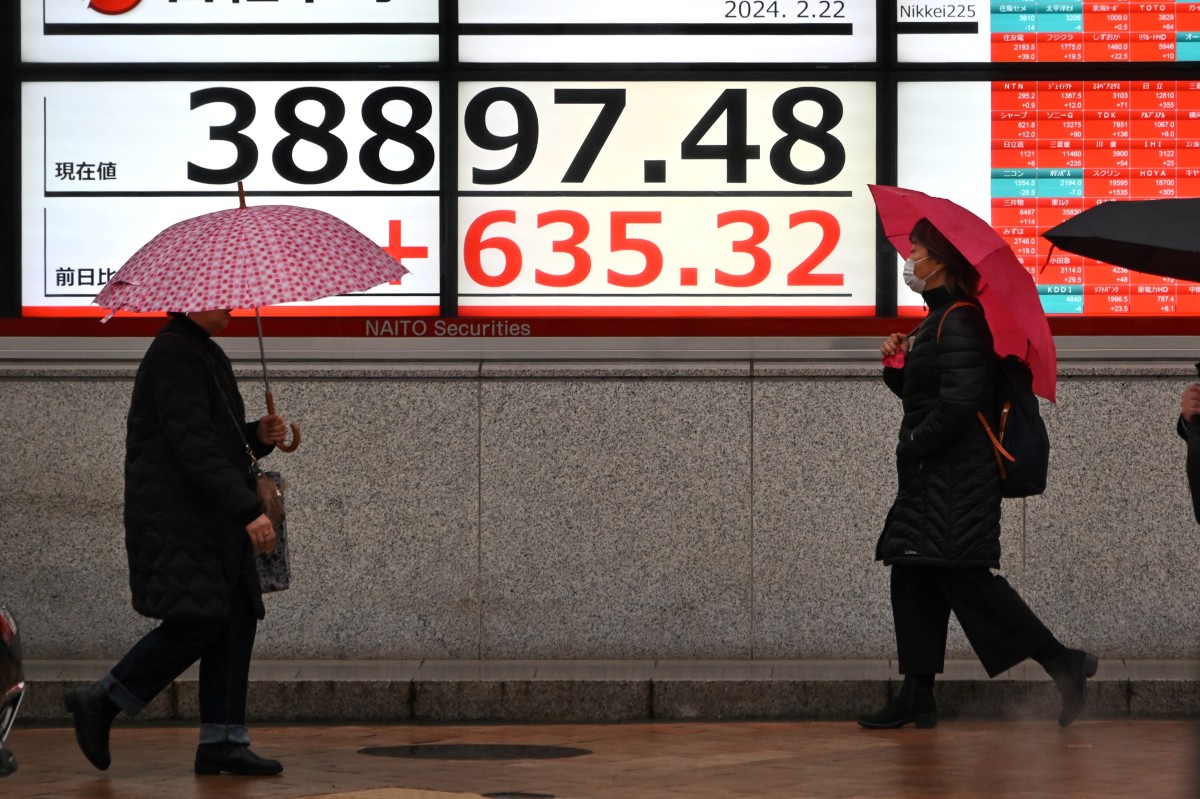Hong Kong, China – Asian markets rose on Thursday, with Tokyo’s benchmark index posting a record high after greater-than-expected earnings from US chip giant Nvidia.
Highly anticipated earnings results from Nvidia beat expectations late Wednesday, with the firm reporting a quarterly profit of $12.3 billion on record-high revenue driven by demand for its AI-powering chips.
Following a mixed day on Wall Street, the company announced record revenue of $22.1 billion in the quarter that ended late January and $60.9 billion for the fiscal year.
Analysts had predicted its bumper profits could drive up Asian markets and Japan’s Nikkei 225 more than delivered. It rose 2.2 percent to end at 39,098.68 — its highest closing level — on tech share rallies, breaking a record set in 1989.
“As goes Nvidia, so goes the market,” Kim Forrest, chief investment officer of Bokeh Capital Partners, told Bloomberg on Thursday.
Its earnings report “does confirm the narrative that AI is going to continue to be strong for the foreseeable future. This narrative supported the markets last year, why wouldn’t it do the same this year?” Forrest said.
Stephen Innes, of SPI Asset Management, said Asian equities were “poised for a potential rise”, supported by Nvidia’s gains in after-hours US trading that saw its shares rise more than eight percent.
The firm’s first-quarter outlook exceeded analysts’ forecasts, he said.
Hong Kong, Shanghai and Seoul stocks closed higher, and markets in Taipei, Bangkok, Manila and Wellington were also up. Sydney was flat.
London, Frankfurt and Paris rallied at the start of trading.
Investors were looking to the European Central Bank’s minutes of its most recent meeting on eurozone monetary policy, to be released later Thursday, for clues on when it could start cutting rates.
In the United States, January’s Federal Reserve policy meeting minutes showed that officials had mixed views over the timing of cutting interest rates — but most members were more concerned about moving too early.
Traders will “be glossing over the hawkishly skewed details of the US Federal Reserve’s January meeting”, according to Innes.
“These minutes revealed that policymakers are concerned about the potential risks of cutting interest rates too soon.”








